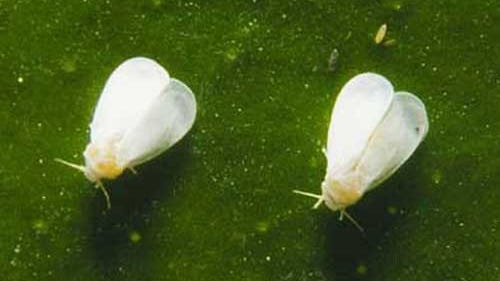Gardening: What you need to know for September gardening

September is here with another month of heat and heavy rain. This month is the height of hurricane-season. And there are some on the horizon which will hopefully go elsewhere. Remember all the hurricane preparation and clean up tips to help you through this period.
Also, keep a close eye on your lawn right now. We can have hot dry periods followed by some very wet weather. These climatic changes are perfect for the breeding of new generations of chinch bugs. Chinch bugs like to lay their eggs when it is dry and then the eggs hatch with the rains. Watch for the telltale yellowing followed by brown spots. Part the blades of grass to find the little black bugs with white wings running in the soil or on the base of the blades. The newly hatched bugs are orange.
More:Gardening: It is unbearably hot out there
Grubs can also be very active right now. Areas of your lawn that look water stressed may have grubs actively eating the roots of the grass. Grab a handful of grass in these areas and pull on it. If it lifts away from the soil with no resistance from the roots, you probably have grubs. A little digging in the soil will usually produce a fat, white grub lying in a C-shaped position. Grubs come to the surface to feed when the soil moisture is high, as it is after significant rain.
And finally, stressed turf followed by flooding rains will be more susceptible to diseases such as brown patch, gray leaf spot or root rot. People who mistakenly turn off their sprinkler systems, believing the rain will keep their lawn healthy, can bring on disease problems when lawns are stressed from inadequate water that did not allow for the higher trans-evaporation rates of summer. Brown-patch affects the lawn in circular patterns and the blades can be easily separated from the crown or root area. Leaf disease causes the blades to have lesions, which eventually kills the whole blade. Root rot can be found in those damaged areas from spring. The disease will rot the roots from the stolons allowing them to float above the lawn. All these diseases can be controlled with the use of fungicides to prevent the spread of disease organisms to healthy surrounding lawn areas.
The ficus whitefly was decimating ficus hedges all around Marco Island this time last year but does not seem to be a major problem this year. I have noticed a slow decline in the damage these pests were doing to the ficus hedges and think the beneficial insects may be getting the upper hand. The beneficial insects released by the state for the spiral whitefly have been very effective. The sight of black, sooty mold covered palms and gumbo limbo trees is almost a bad memory. Should you see an infestation beginning, drenching with an insecticide containing Imidacloprid will control these insects and will last for six months to a year. Drenching rather than spraying is a method that will spare our beneficial insects which, as you can see, will do a much better job of controlling these insects for the long term.
This is a good time to start preparing vegetable and flower beds by turning the soil and fumigating to control nematodes and diseases. The natural way to fumigate is to cover the garden beds with clear plastic, allowing the heat to kill these organisms. Add some new organic matter and let them sit until planting season in mid to late October.
If you have poinsettias in your yard you should give them a final pruning this month and then leave them alone for holiday color in December.
September is the last full month you can get away with heavy pruning on all shrubs. The official cutoff date for heavy pruning is Oct. 15 to avoid damage of tender new growth from cold winter temperatures.
After one more month of really hard work October should bring slightly cooler temperatures, less rain and humidity, and a slowed growth rate for your gardens. A welcome relief after a long, hard summer for tropical gardeners.
More:Gardening: Take-all patch taking over
Eileen and Peter Ward have owned a landscape and lawn maintenance company for 35 years. Eileen can be reached at Gswdmarco@comcast.net or 239-394-1413.